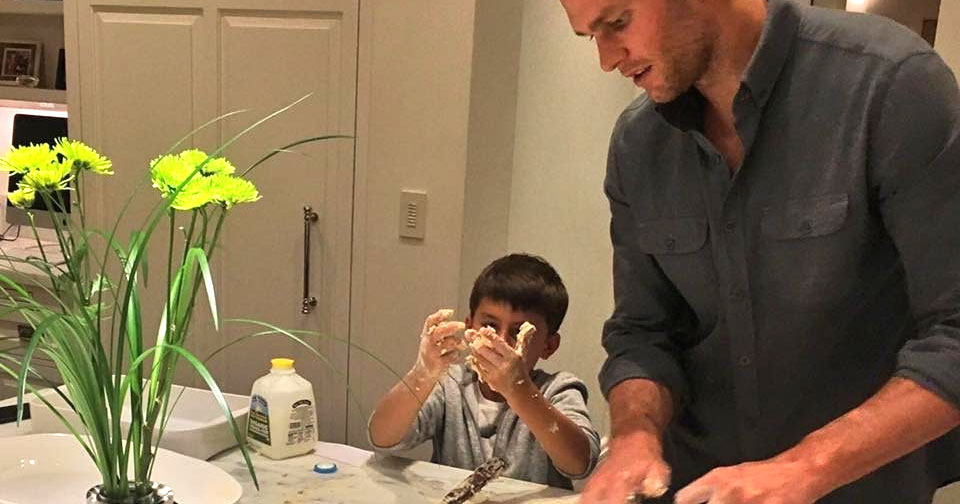The Five Love Languages of Children
And they were bringing children to him that he might touch them, and the disciples rebuked them. But when Jesus saw it, he was indignant and said to them, Let the children come to me; do not hinder them, for to such belongs the kingdom of God. And he took them in his arms and blessed them, laying his hands on them (Mark 10:13-16).
Jesus loves children. One way he showed his love for them was to tell his disciples to “let the children come to me.” He then took the young children in his arms and laid his hands on them. Jesus touched the children. Physical touch is important and demonstrates our love. Did you know that babies who are held, hugged, touched, and kissed develop a healthier emotional life than those who are left for long periods of time without physical contact? (The Five Love Languages of Children)
A few years ago I interviewed Dr. Gary Chapman on the Family Shield radio program about his book The Five Love Languages of Children. Dr. Chapman teaches that every person, including children, respond best to one primary love language. He and others have broken these love languages down into five languages that include: 1) Quality Time; 2) Words of Affirmation; 3) Gifts; 4) Service; and 5) Physical Touch.
Why is knowing we are loved so important? As human beings our deepest emotional need is to be loved. God knew this because He created us. He showed His love for us by sending His only begotten Son to suffer and die in our place. Jesus lived the perfect life we couldn’t live, suffered for our sins, and offers us forgiveness and eternal life (Romans 5:8) in heaven. We are thankful that God loves us and gives us parents and caregivers to care for us, and help us grow physically, emotionally, and spiritually.
Children need to feel loved by their parents and caregivers. When children feel loved, they grow up to be responsible and caring people who show love to others. So, meeting our children and grandchildren’s emotional need for love is critical as we raise children in today’s world.
What is quality time? It is giving our child our undivided attention. We go where the child is and look them in the eyes as we interact with them. For example, we may decide to play ball with our 2 year old son or grandson. We roll the ball back and forth on the floor. “Good job,” we say. Then the phone rings and we begin talking on the phone. But we continue to roll the ball back and forth as we talk on the phone. At this point we are no longer giving our two-year old quality time…because they no longer have our complete attention. So quality time doesn’t just mean being in the same room with our children, it means giving them our undivided attention.
If you come home from work and your child says, “Mommy, come into my room I want to show you something”….she is begging for your attention and wants some quality time. Or, if your child says, “Can we play a game together, please.” Your child wants quality time.
What are words of affirmation? Words of affirmation can be verbal words or words of praise. “You are such a great daughter.” It can include encouraging them…maybe to try something they have never done before. “I think you are ready to ride your two wheeler by yourself. Let’s go outside and try.“ It can also be expressing affection. “I love you.” “I’m proud of you.”
As children get older you might write these words or even sing the words to them. You might leave a little note in their lunchbox telling them you love them and put a smiley face on it. Make sure you affirm effort, not perfection. Children will not do everything perfectly. Remember how you reacted when they began to walk. What did you do when they fell down after taking two steps? You cheered them on…”come on, sweetie, you can do it.” Praise them for their efforts.
Receiving gifts is another love language. No, we don’t mean that we have to give our children everything they ask us for…but we can give them gifts. The gifts don’t need to be expensive. Some gifts can be something small you selected for them on a business trip. Maybe you saw a special stone on the rocks near the river. “When I saw this stone I thought of you. I know how much you enjoyed skipping the stones across the river on vacation last summer. So I picked it up for you. Look at the beautiful colors in it.” Gifts do not need to cost a lot of money. You can make gifts, too.
What are acts of service? Acts of service are doing things for your child they can’t do themselves. So when they are little you feed them and dressed them. But as they grow you teach them how to feed themselves and dress themselves. As they get older you might teach them how to cook. You begin by taking them to the grocery store to select and pay for the food. Then you allow them to mix, beat, and help you wash the dishes when you’re done.
Physical touch communicates emotion and love too. Remember that Jesus said, “Bring the children to me. And then he touched the children.” Because physical touch is important we pick up babies and hold them, hug them, and kiss them. Physical touch is a powerful communicator of love. As they get older it might rub their back, mess up their hair lovingly, and even wrestling them to the ground.
Dr. Chapman shared a story about visiting a prison and sharing information about the five love languages with the prisoners. He told us of a 31 year old prisoner who got up to speak after he had made his presentation. The prisoner said, “Thank you for sharing this information. I never felt loved by my mother. I realized as I listened to you that my primary love language is physical touch. But my mother never hugged or kissed me. The first time I remember her hugging me was when I left for prison. But, as you spoke I realized she did most of the other love languages. She worked hard to put food on the table for us. She praised me. Now I know she did love me. She just didn’t speak my love language.”
How do we discover our child’s primary love language?
Some people ask, “How do we discover our child’s primary love language?” Every child will have one primary love language. Once you know what it is, use large doses of this love language as you interact with your child. Here are some ways to figure out which primary love language your child has:
Observe how they express love to you. Do they hug your leg when you get home, mess up your hair, like to sit on your lap, or ask you to give them a backrub? Which love language is it? Observe what they say and do. “Mommy you did a good job making dinner tonight. I liked it a lot.” Which love language is it?
Listen to what children and youth complain about. What do they request of you? Daddy, we never get to go to the park anymore since the baby came.” “Would you play a game with me.” Which love language is it?
Didn’t you bring me anything from the store? Which love language is it? I can’t ever do anything to please you. I never do anything right. Which love language is it?
Dr. Chapman ended by sharing, “I’m not telling parents to only use their child’s primary love languages, Kay. What I’m saying is give your child heavy doses of their primary love languages, but use all the languages to show your love.” As you teach them the five love languages, you will help them learn how to show love to others…their parents, grandparents, siblings, and friends.
Kay L. Meyer is the founder and president of Family Shield Ministries. Her weekly radio program and podcast is heard on 50 stations and through the Internet. Learn more at: www.familyshieldministries.com.
Family Shield, A Weekly Radio Program and Podcast
 Family Shield airs on 50 radio stations throughout the United States and on our weekly podcast on the I-Tunes & Apple, the FSM website, Facebook and Twitter. Learn more about locations of radio stations and the day/time the program airs here.
Family Shield airs on 50 radio stations throughout the United States and on our weekly podcast on the I-Tunes & Apple, the FSM website, Facebook and Twitter. Learn more about locations of radio stations and the day/time the program airs here.with Kay L. Meyer, founder & president of Family Shield Ministries and host of Family Shield
Guest: Rev. Jim Buckman
The program is dedicated to Harold Melser
Listen Here
Guests: Krista Young and Jill Hasstedt
August 10-16
Listen Here
Guest: Rev. Keith Haney
September 1-7
Guest: Rev. Charles Spomer
September 8-14
Guest: Judy Dobler, author
September 15-21
Guest: Jill Hasstedt
with Kay Meyer, president and host
September 29-October 5
When You are Unemployed with Dale Kreienkamp, author
Learning About the Reformation
Witnessing – A Lifestyle by Kay L. Meyer
SAVE 25% Now only $6.00 – Hurry, Limited Time Offer!
Jesus is the ONLY Way!


